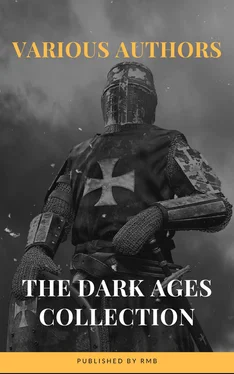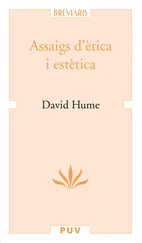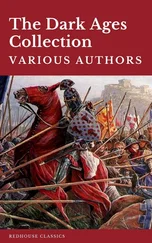§ 2. The Senate. The Imperial Council
Although the dyarchy, or double government of Emperor and Senate, had come to an end, and autocracy, as we have seen, was established without reserve or disguise, the Senate remained as an important constitutional body, with rights and duties, and, though it was remodelled, it maintained many of its ancient traditions. The foundation of Constantinople had led to the formation of a second Senate, modelled on that of Rome — a great constitutional innovation. Constantine himself had not ventured upon this novelty. He did found a new senate in Byzantium, but his foundation seems rather to have resembled the senates of important cities like Antioch than the august Senatus Romanus. 57His son Constantius raised it from the position of a municipal to that of an Imperial body. 58
The principles that senatorial rank was hereditary and that the normal way of becoming a member of the Senate itself was by holding a magistracy still remained in full force. The offices of aedile and tribune had disappeared, and by the end of the fourth century the quaestorship was on the point of disappearing. Hence the praetorship remained as the portal through which the sons of senators could enter the Senate. They not only could, but they were obliged. The sole duty of the Praetor now was to spend money on the exhibition of games or on public works. There were eight praetors in the East; the expenses were divided among them; and the Senate, which had the duty of designating them, named them ten years in advance, in order to enable them to economise or otherwise collect the necessary funds, as the cost of holding the office was extremely heavy. 59The burden of the consulship was not so severe, but that supreme dignity was bestowed only on men who were already senators.
Men who were not born in the senatorial order could be admitted to the Senate in various ways, whether by a decree of the Senate itself or by the Emperor, who might confer either upon an individual or upon a whole class of persons an order of rank which carried with it a seat in the Senate. Persons thus co-opted by the Senate were liable to the burden of the praetorship, and likewise those whom the Emperor ennobled, unless special exemption were granted.
Exemption was granted frequently, and it took the form of adlectio . 60This was the term used in the early Empire for the process by which the Emperor could introduce into the Senate a candidate of his own and make him a member of the aedilician, for instance, or of the praetorian class, though he had never filled the corresponding magistracy. In the fourth century these classes disappeared and were replaced by the three orders of illustres , spectabiles , and clarissimi , in each of which there were certain subdivisions. The Emperor could confer these orders of rank on any one, 61and a person to whom he granted the clarissimate became thereby a member of the lowest order of the Senate, and belonged to the adlecti who were exempt from the praetorship. Further, under the new administrative system which will be described in the following chapter, all the important offices carried with them the title illustris , or spectabilis , or clarissimus , and thus secured to their occupants eventually, if not immediately, 62seats in the Senate. And in some cases, though by no means in all, this admission by virtue of office carried with it exemption. Again, there were many classes of subordinate functionaries who received, when they retired from office, the clarissimate or perhaps one of the higher titles, thus becoming senators, and these as a rule enjoyed exemption.
To resume: the Senate was recruited from men of senatorial origin, that is, sons of senators, and from men who, born outside the senatorial class, were ennobled by elevation to office, or on retiring from office, or occasionally by a special act of the Emperor or of the Senate. The praetorship was the front gate for entering the Senate, but there was also a back gate, adlection, of which the Emperor held the key, and a large and increasing number of the second section entered by this way.
One of Constantine’s administrative reforms was the opening to senators of all the official posts, which hitherto had been confined to the equestrian order, so that the careers open to a young man of senatorial birth were far more numerous and varied. The equestrian order gradually disappeared altogether. On the other hand, men of the lowest origin might rise through the inferior grades of the public service to higher posts which carried with them the right of admission to the Senate. Thus an aristocracy was formed, which was recruited every year by men whose fathers had not belonged to it, and was divided into grades depending on office or special Imperial favour, not on birth. 63Ancient tradition was so far preserved that those who had discharged the functions of consul (including honorary consuls) had the most exalted rank. 64Next to the consuls came Patricians, a new order instituted by Constantine, not connected with any office, and conferred — at first very sparingly — by the Emperor on men highly distinguished for their services to the State. 65
A large number of senators preferred living on their estates in the country to residence in the capitals, and of those who actually attended the meetings of the Senate 66it is probable that the greater number were men who held official posts and that simple senators were few. We may conjecture that the highest and smallest class, the Illustrious, came to form the majority of the active members of the Senate, and that this fact caused the Emperors before the middle of the fifth century to permit the two inferior classes, Spectabiles and the Clarissimi, to live wherever they pleased. 67A few years later all members of these classes who lived in the provinces were relieved from the Praetorship, and were graciously recommended to stay at home and enjoy their dignities. 68This meant that while they belonged to the senatorial class and paid the senatorial taxes, they were expressly discouraged from sitting in the Senate. The next step was to exclude entirely the two lower classes and confine the right of deliberating in the Senate to Illustres, and by the end of the fifth century this seems to have been the rule. 69
The functions of the Senates of Rome and Constantinople were both municipal and Imperial. As the funds contributed by the praetors were exclusively applied for the benefit of the capital cities, the nomination of these magistrates and the control exercised over the distribution of the funds belonged to the municipal part of their duties. The Prefect of the City acted as chief of the Senate and as its executive officer, and conducted all its communications with the Emperor. 70He was the guardian of the rights of senators; 71and that body acted with him as an advisory council on such matters as the food supply of the capital, or the regulation of the public instruction given by professors and rhetors.
We have already seen the constitutional importance of the Senate when a vacancy on the throne occurred. It could pass resolutions ( senatus consulta ) which the Emperor might adopt and issue in the form of edicts. 72It could thus suggest Imperial legislation, and it acted from time to time as a consultative body in co-operation with the Imperial Council. Some of the Imperial laws took the form (we do not know on what principle) of “Orations to the Senate,” and were read aloud before that body. 73Valentinian III, in A.D. 446, definitely formulated a legislative procedure which granted to the Senate the right of co-operation. When any new law was to be promulgated, it was first to be discussed at meetings of the Senate and the Council; if agreed to, it was to be drafted (by the Quaestor), and then submitted again to the same bodies, after which it was to be confirmed by the Emperor. 74This regulation points to the probability that it was already the habit frequently to consult the Senate. 75
Читать дальше












